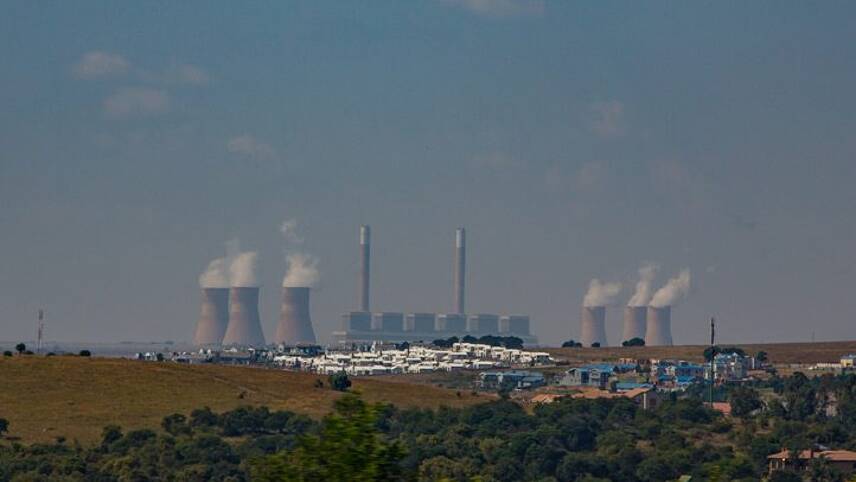Register for free and continue reading
Join our growing army of changemakers and get unlimited access to our premium content

Coal-fired power plant in South Africa
New figures, commissioned by the Catholic development agency CAFOD and produced by the Overseas Development Institute, reveal that the UK spent £7.8bn on support for energy in developing countries between 2010 and 2017.
Of the £7.8bn, just 17% was accounted for by renewables. In contrast, fossil fuels accounted for 60% of total funding, with the remainder either a mix of energy sources or undefined.
With the UK recently setting a net-zero target for its own economy, the research found that there was no discernible change in overseas support policies, despite the UK signing up to the Paris Accord and the UN Sustainable Development Goals (SDGs). One of the key aims of the SDGs is to provide access to affordable, sustainable and modern energy for all by 2030.
CAFOD’s lead analyst on climate change and energy Dr Sarah Wykes said: “The UK wants to be a leader on climate change, so it’s shocking that UK aid money is still being spent on fossil fuels overseas. At a time when we are reducing the UK’s own reliance on fossil fuels, why are we spending billions of pounds saddling poorer nations with outdated technologies that will cause more climate damage?
“The whole point of development aid is to improve the lives of people living in poverty. The government needs to align its aid spending with its climate goals and urgently commit to ending all new aid for fossil fuels.”
Double or nothing
The research found that 39% – around £3bn – of the UK’s overseas energy support was classed as Official Development Assistance (ODA) or general aid, targeted at people living in poverty. However, £678m of this sum was spent on polluting fossil fuels; research suggests that those living in poverty will be the hardest hit by climate change.
The overall sum of ODA was also dwarfed by export finance guarantees (UKEF) – which offer competitive terms and rates to buyers – that provided around £3.6bn to fossil fuel projects – almost half of the UK’s total overseas energy support. According to CAFOD, almost 100% of UKEF energy support was funnelled into fossil fuels.
Under 5% of overall energy support was spent to connect people to modern energy services, while a further 12% was spent on improving access to energy for households in developing nations.
There is no clear year-on-year trend regarding the UK’s overseas spending on fossil fuels. While £315m was spent in 2017, it is a significant reduction on the £1.1bn spent in 2016. Between 2010 and 2017 the smallest amount spent on overseas fossil fuel development was £265m in 2014. These figures have been affected by the development timeframes of large projects.
CAFOD has called on International Development Secretary Rory Stewart – or his successor – to stop new aid money being spent on fossil fuels, and to improve oversight as to how aid is being provided by departments outside of the Department for International Development (DFID).
Earlier this year, Stewart announced plans to double the amount of foreign aid spent on climate-related projects to over the next five years. Stewart said he would like the £1.1bn sum that the Department for International Development (DFID) spends on climate mitigation and adaptation projects overseas annually to rise to £2.2bn by 2024.
In a report addressed to the Cabinet, the International Development Committee (IDC) claimed that Government must place climate change at the centre of its foreign aid strategy and funding decisions.
Specifically, it urges the Government to make £1.76bn – the amount it has committed to spending on climate finance during 2020-21 – the annual minimum spend in this area, by ring-fencing it in the upcoming spending review. The figure is believed to be the largest earmarked for this cause in a single year by the UK since records began.
Matt Mace


Please login or Register to leave a comment.